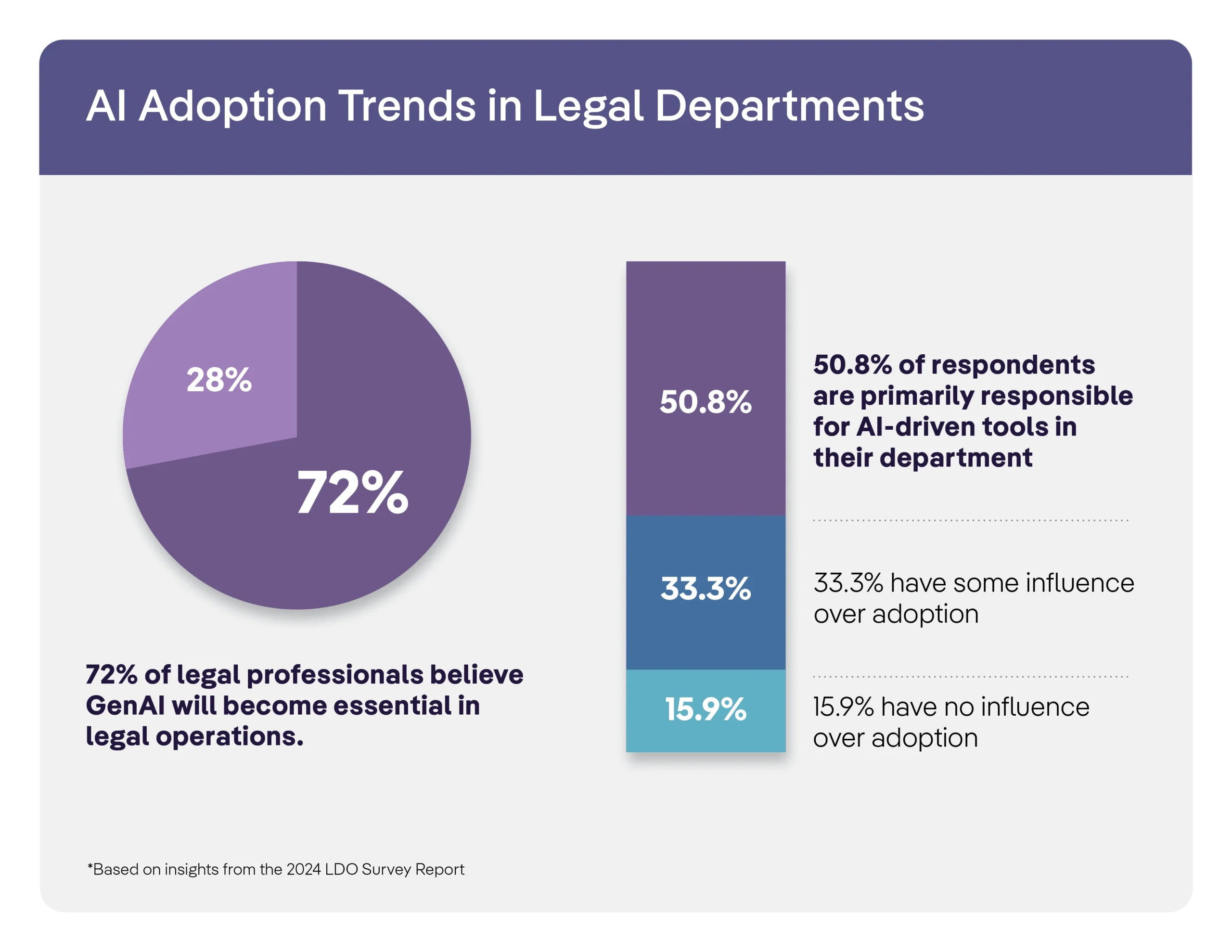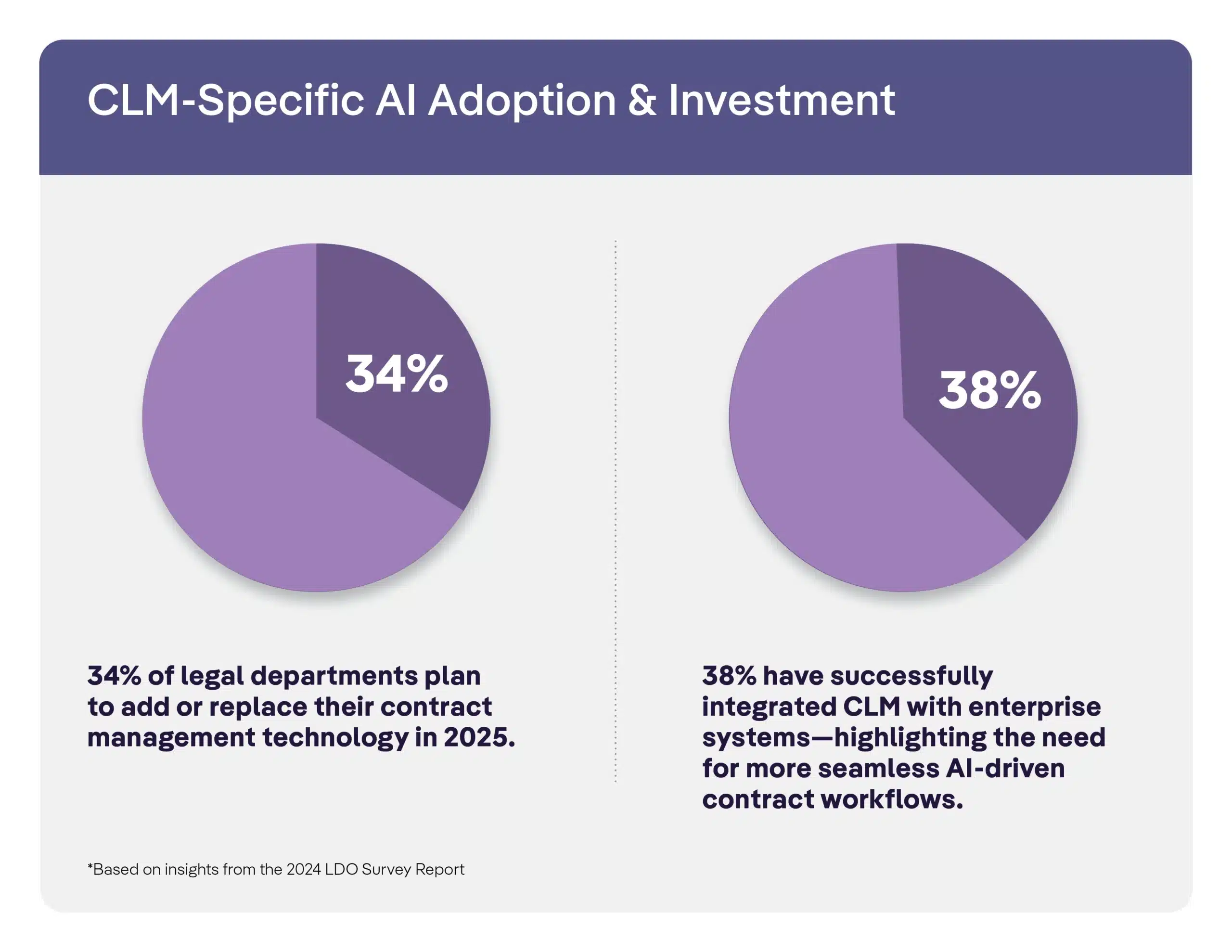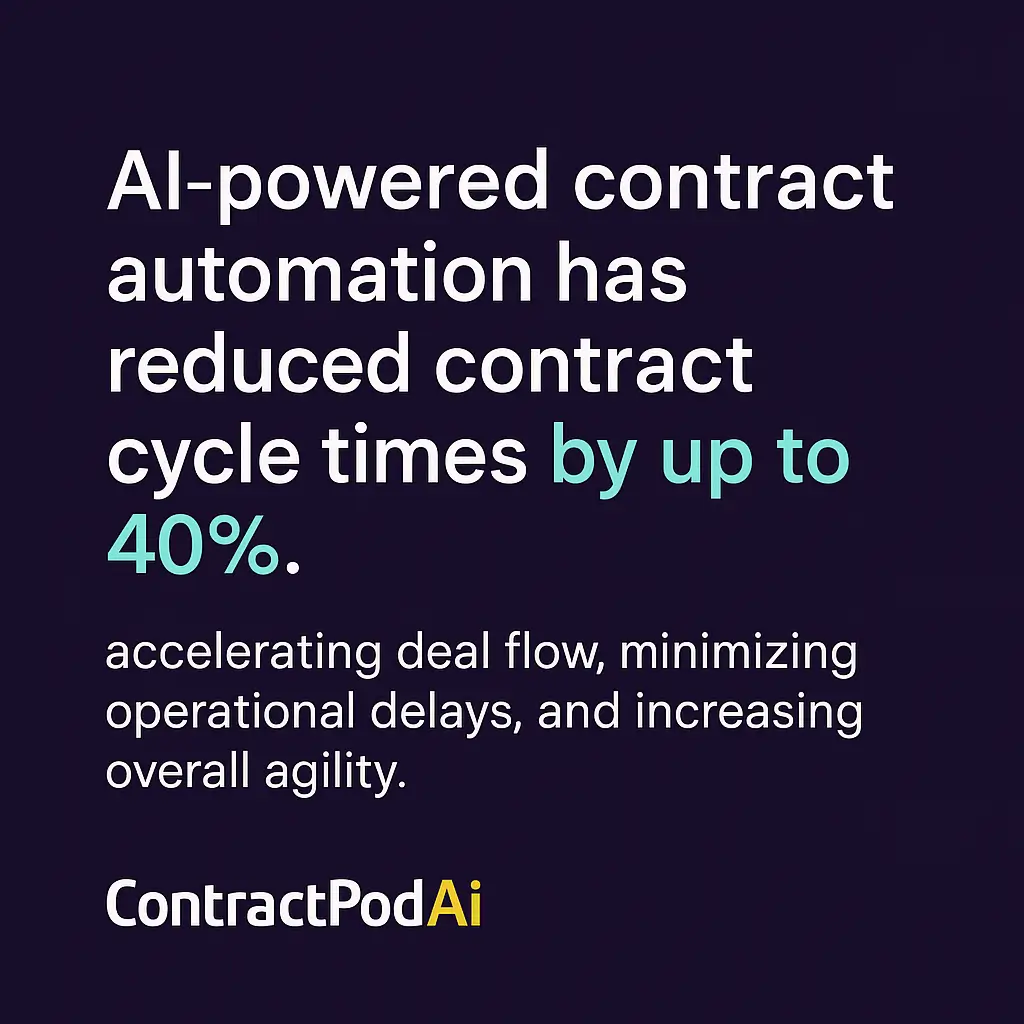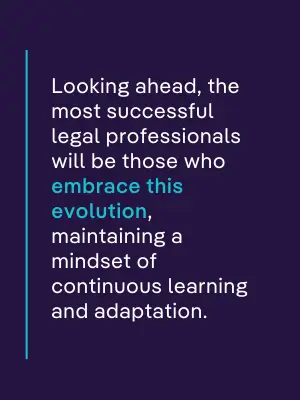Contract Lifecycle Management (CLM) represents the comprehensive approach to managing the entire lifecycle of contractual agreements, from initiation and authoring through negotiation, execution, and ongoing monitoring. In today’s rapidly evolving legal tech landscape, CLM has transformed from a simple document management system into an integral component of modern enterprise operations, touching every aspect of business relationships and compliance.
The urgency of adopting AI-driven CLM solutions in 2025 and beyond cannot be overstated. Organizations that hesitate to embrace AI-powered CLM risk falling behind in an increasingly competitive marketplace where speed, accuracy, and efficiency are paramount. The ability to quickly process, analyze, and act on contract-related information has become a critical differentiator for successful contracting teams.
The Rise of Specialized AI in CLM
Agentic AI: A Transformative Force Across the Enterprise
A monumental shift is approaching in how businesses operate. A recent Gartner report reveals a striking prediction: “By 2028, at least 15% of day-to-day decisions will be made autonomously through agentic AI, up from zero percent in 2024.” This forecast, from Gartner’s Top Strategic Technology Trends for 2025, signals a fundamental transformation in how teams will work with AI systems.
This prediction has profound implications across businesses and industries. Agentic AI represents a sophisticated evolution that moves beyond traditional AI approaches. Instead of relying on a single AI model, agentic AI deploys multiple specialized AI agents, each serving as an expert in specific aspects of contract management. These agents work together much like a well-coordinated legal team, sharing insights and combining their specialized knowledge to tackle complex legal challenges.
The true power of Agentic AI emerges through its strategic task distribution capabilities. Each AI agent brings focused expertise to different aspects of contract management, from risk assessment to compliance monitoring and clause analysis. Working in harmony, these agents share information and insights in real-time, enabling more sophisticated and nuanced decision-making. This collaborative approach not only streamlines routine tasks but elevates the entire contract management process through advanced problem-solving and strategic planning capabilities that weren’t possible with earlier AI technologies.


Key Trends Shaping AI in CLM in 2025
The legal technology landscape continues to evolve at an unprecedented pace. For a comprehensive exploration of the transformative changes sweeping through the legal industry, you can explore our in-depth analysis of Legal Technology Trends of 2025. Here, we’ll focus on three key trends that are explicitly reshaping how entire organizations approach Contract Lifecycle Management through AI.

Unlocking Enterprise-Wide Value with AI-Driven CLM
Organizations leveraging generative AI in contract lifecycle management (CLM) are experiencing transformative benefits that extend beyond efficiency and automation. AI-driven CLM improves revenue growth, risk management, compliance, and operational resilience—unlocking strategic advantages across leadership roles and industries. A recent study found that AI-powered contract automation has reduced contract cycle times by up to 40%, accelerating deal flow, minimizing operational delays, and increasing overall agility.
Driving Business Growth and Revenue Optimization (CEO, CFO)
For executives focused on business expansion, AI in CLM plays a critical role in accelerating revenue, reducing financial risks, and enhancing strategic decision-making:
- Accelerating Deal Closures: AI-generated contract drafts and automated workflows enable faster negotiations, reducing contract cycle times and increasing revenue realization
- Optimizing Financial Performance: AI-driven contract analytics help finance teams reduce missed renewals, revenue leakage, and unstructured discounting, improving bottom-line profitability
- Scaling Without Increasing Legal Headcount: AI-driven contract automation enables business growth without proportional increases in legal staffing, ensuring sustainable scaling
Enhancing Compliance, Security, and Risk Mitigation (General Counsel, CIO)
Risk management and compliance are central to every organization, and AI-driven CLM transforms legal operations by proactively identifying risks and enhancing security:
- Ensuring Compliance Across Contracts: AI continuously monitors obligations, renewal deadlines, and compliance terms, reducing legal exposure
- Providing Full Contract Audit Trails: AI-driven tracking ensures every contract action is recorded, improving audit readiness and regulatory compliance
- Strengthening Data Security: AI-powered CLM platforms reduce reliance on legacy systems while seamlessly integrating with modern IT infrastructures to enhance security
Operational Efficiency and Workforce Productivity (COO, HR)
AI-driven CLM reduces administrative overhead and enhances workforce productivity by streamlining contracting processes:
- Reducing Employee Turnover: Automating contract-heavy HR processes—such as offer letters and employee agreements—improves operational efficiency and reduces delays
- Enhancing Collaboration Across Teams: AI-driven workflows break down silos between legal, sales, procurement, and HR, improving communication and contract visibility
- Improving Workforce Utilization: AI automation allows employees to focus on strategic initiatives instead of repetitive contract management tasks
Optimizing Sales and Supplier Relationships (VP of Sales, Procurement)
AI-driven contract management enables sales and procurement teams to streamline contract negotiations, improve supplier performance, and drive customer satisfaction:
- Shortening Sales Cycles: AI speeds up contract drafting and approvals, allowing sales teams to close deals faster and increase customer acquisition rates
- Enhancing Supplier Performance Management: AI tracks third-party contract compliance and ensures vendor agreements align with business objectives
- Benchmarking Competitive Pricing and SLAs: AI extracts pricing trends and SLA performance data from historical contracts, empowering procurement teams to negotiate better terms
Overcoming Challenges in AI-Driven CLM
Bridging the Skills Gap
The rapid evolution of AI technology is fundamentally reshaping legal operations, creating an urgent need for comprehensive skill development. This transformation extends far beyond basic technical literacy, demanding a sophisticated understanding of AI systems alongside enhanced strategic and analytical capabilities.
The integration of AI into legal operations has sparked a significant shift in required competencies. Legal professionals now need to develop expertise in areas such as data strategy, AI governance, and machine learning principles as they apply to contract management. The emergence of specialized roles, including AI model auditors and machine learning specialists within legal departments, signals a new era where technical proficiency and legal expertise must seamlessly converge.

However, technical skills represent only one side of the equation. The human element remains crucial in legal operations, with increased emphasis on abilities that AI cannot replicate. Critical thinking, creative problem-solving, and sophisticated communication skills have become more valuable than ever. Legal professionals must now serve as bridges between technological capabilities and practical legal applications, requiring a unique blend of technical knowledge and traditional legal expertise.
Organizations are responding to these evolving needs by developing comprehensive learning ecosystems. These systems typically include structured training programs, hands-on experience with AI-powered legal tools, and regular opportunities for knowledge sharing and skill development. Certification programs in relevant technical areas provide validated expertise, while practical workshops allow professionals to apply their learning in real-world scenarios.
The success of these upskilling initiatives relies heavily on organizational commitment and leadership engagement. Simply providing access to training programs is insufficient; organizations must foster an environment where continuous learning becomes integrated into daily operations. This cultural shift ensures that legal teams remain adaptable and capable of leveraging new technologies effectively as they emerge.
Looking ahead, the most successful legal professionals will be those who embrace this evolution, maintaining a mindset of continuous learning and adaptation. The future of legal operations lies in the hands of professionals who can effectively combine technical proficiency with legal expertise, creating value through the thoughtful application of AI-powered tools and systems.
Cybersecurity in Contract Management
Modern CLM platforms incorporate multiple layers of security to ensure data protection and compliance:
- Advanced encryption protocols protect sensitive contract data
- Multi-factor authentication and role-based access controls ensure secure access
- Comprehensive audit trails maintain accountability and compliance
Future-Proofing Your CLM Strategy
Integrating AI with Human Expertise
The future of CLM lies in achieving the right balance between AI automation and human oversight:
- AI handles routine tasks, document review, and initial analysis
- Legal professionals focus on strategic decision-making and complex negotiations
- Hybrid workflows maximize efficiency while maintaining quality control
The Role of Ecosystem Integration
Successful CLM implementation requires seamless integration with existing business tools:
- Direct integration with Microsoft Word and Outlook streamlines workflow
- Connection to procurement platforms enables end-to-end contract management
- API-driven architecture facilitates integration with enterprise systems
Embracing AI-Driven CLM in 2025
The adoption of AI-powered CLM tools in 2025 has become a strategic imperative for departments seeking to maintain competitive advantage. Organizations that embrace these technologies while maintaining strong security and ethical standards will be best positioned to thrive in an increasingly complex legal landscape. The key to success lies in choosing the right CLM partner that can provide both cutting-edge AI capabilities and robust compliance features.
Ready to see how AI-driven CLM can transform your enterprise operations? Request a demo today and discover the future of contract management.


